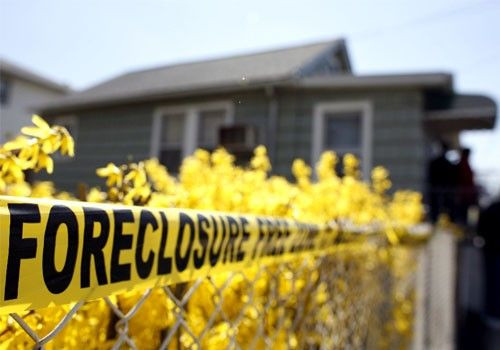Housing Double Dips in 2011, Shows Diverging Fate of US Corporations and Individuals

In March 2009, the S&P 500 hit a low of 666. Since then, it has almost doubled.
The SPCS20R is a composite index of home prices in 20 representative US metropolitan areas. It bottomed in May 2009 at 140.95. Then, for the next 13 months, it steadily rose to 147.68, seemingly recovering along with the stock market and the broad economy.
However, May 2010 was the peak of housing prices. In the next 7 months, the SPCS20R steadily declined. In its latest reading for January 2011, it fell to 141.90, or within 1 point of the financial crisis low.
The divergence between the stock market and the housing market illustrates the diverging fate of US corporations and consumers.
The stock market rose because monetary policy is extremely loose and corporate earnings have rebounded sharply.
The biggest beneficiary of loose monetary policy was big institutions, which means money was concentrated in relatively few hands. The concentration of money made it impractical for these hands to parse them out in small loans or individual residential home purchases. It was much more practical to invest the money in bulk in the stock market or bond market.
Moreover, US corporate earnings rebounded sharply because US multinational corporations have participated in global growth by doing business with emerging market economies. In the current recovery, emerging market economies led the way mainly because their government and household savings were much higher compared to the developed world. Once the global financial crisis hit, they simply tapped into those savings.
Meanwhile, the US housing market struggled because individual consumers were pretty much the only buyers in this market. (Big banks could invest in bundles of mortgages; however, no big institution can do the actual buying of individual houses on a large scale.)
US consumers have struggled in this recovery. They don’t benefit from global growth the way US multinationals can; in fact, the irreversible tide of globalization has actually taken away (high paying) jobs from the US and offered only cheaper consumer goods in return.
Moreover, due to more stringent lending standards, the relatively poor state of smaller banks, and the tough jobs market (which increases the credit risk of individuals, from a lender’s point of view), credit isn’t being extended to individual consumers.
Lastly, many households are still nursing severely damaged balance sheets due to the initial collapse of the housing market.
Therefore, it’s not surprising that the US housing market is double dipping while stocks continue to soar.
© Copyright IBTimes 2024. All rights reserved.





















